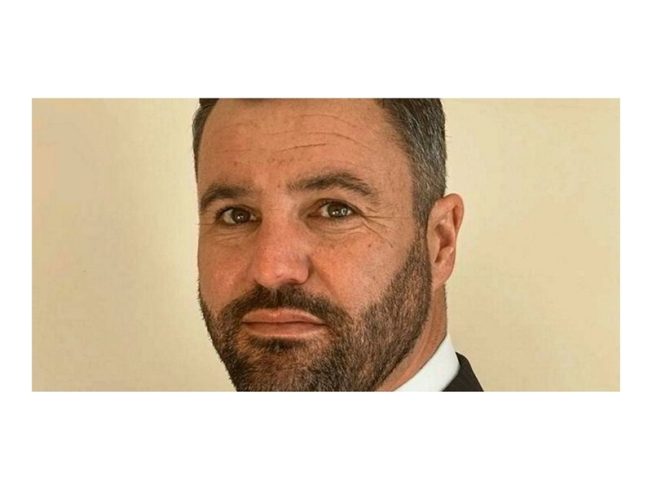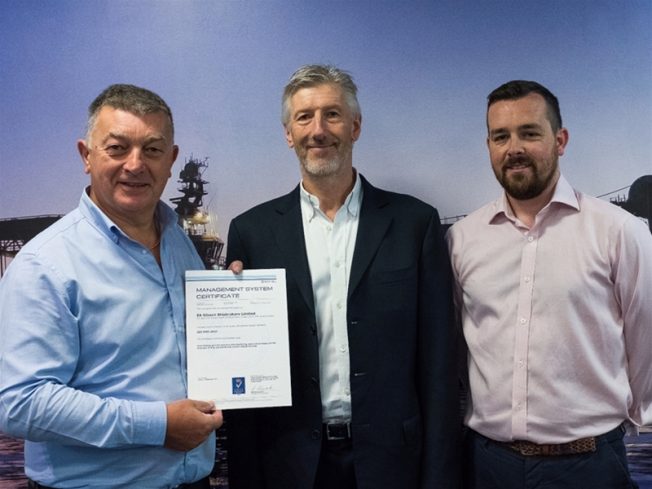Nigel Richardson reflects on ‘transitional period’ at Gibson

Gibson Shipbrokers has been through a transitional period in the past year, says managing director Nigel Richardson.
His choice of phrase, common among football managers, is perhaps apt, given the poaching of a team of 10 clean brokers by a cross-town rival and the reshaping of the dry cargo desk following the retirement of some respected pros.
Add in a historic change of ownership, the opening of a new dry cargo office in China and arguably the worst shipping crisis in decades, and Richardson has had plenty on his plate of late.
Over lunch at London’s Bleeding Heart restaurant, popular with Gibson brokers over many generations, he says the company has battled back from the disappointment of losing the clean brokers to Affinity last year.
“I make no secret of the fact that I was incredibly upset with what they did,” he said. “To have no prior knowledge of the fact after, frankly, everything the company had done for them, is pretty disappointing. But it is what it is and you move on.”
Richardson — who expresses gratitude to key clients who supported the company at a tricky time — says David Triggs deserves huge credit for his role in rebuilding the clean desk. He says that after a mixture of internal reshuffling and new hires — including Paul Martin from Clarksons and former OW Bunker man Lars Moller in Singapore — the desk is back up to strength. Today, the 11-broker clean team is split between London, Singapore and Houston.
“We are doing very well and we are expanding in Houston, so the product is as strong as it was before but it’s spread more globally,” Richardson said. “We are no longer in the market looking for anybody specifically to join the team. Any further additions would be very much on a case-by-case [basis]. But the ‘we are hiring’ sign in the shop window is not there any more.”
Reinvesting in dry
He describes the dry cargo market as very challenging. In addition to weak freight rates, a number of key Gibson people were approaching retirement age over a reasonably short time frame. “As a team, we decided to reinvest. It was very counter-cyclical at that time,” he said. “The decisions were not easy to take, particularly as we had recently bought ourselves out of our parentage.”
Led by dry cargo director Nick Ward, who works out of Singapore, new recruits were found to help replace those heading for retirement, including long-serving director Terry Gillam. A dinner in China with Ward and some potential recruits proved fruitful, with Tang Mingming hired to openGibson’s new office in Beijing and Bruce Liu to augment the existing office in Hong Kong.
Gibson’s dry bulk team today numbers 18 brokers, with an age profile very different from two years ago. “These are not all young people. These are people of 30 or 40, senior people with a good client base, and it’s working very nicely,” Richardson said, noting the addition of new business, particularly in the grain market, following the overhaul.
“I’m a firm believer two and two must make five or six,” he said. “If two and two just make four, you have got to question why you are doing it. To that extent, it is working.”
Last August, Gibson closed the curtain on 121 years of ownership by Hunting and became an employee-owned company. Richardson says the change has left the broker in a strong position and able to have greater influence over its destiny.
He believes the “phenomenal deal” was only possible due to the strong historic ties with the Hunting family and executives at the public company. And today, given the oil price crash since the contract was signed, the move looks even better. “When you are drilling for oil and gas and you don’t need it any more, you don’t have to try too hard to work out it’s a car crash,” he said. “Hunting had to readjust. They were in a difficult position.
“Had we not done what we did, the decision which was taken would probably have been a little bit uglier and less friendly than it was. For us, it was perfect timing. Had it been a year later, it would have been a very different outcome.”
Richardson was talking to TradeWinds in the week Bimco released a report warning of the need for shipowners, shipyards and brokers to adjust in order to service the difficult market.
“It’s the first time in 30-odd years that every sector has been stressed,” Richardson noted. However, he does not believe the challenge facing shipbrokers today differs greatly from other eras.
“We are always having to adapt. Brokers who do adapt will thrive and those that don’t, won’t. There is a natural selection and always has been over the years,” he continued, reeling off names such as John I Jacobs, Davies & Newman, Cambridge Tankers and Plowright.
Constantly evolving
“If I mention those names to anybody who has got less than five years in the business, they would say, ‘What are you talking about, granddad?’
“The point is there is nothing new in this situation. It’s a constantly evolving market. Which goes on to the next question, which is: are we ready for consolidation or not? It’s not really a question we need to worry about. We don’t have anybody now telling us we have got to do this or that; we can do what is best for us.”
He says Gibson is not looking for partners. Nor is it looking at acquiring rivals. “We are very happy being where we are,” he said, referring to the regular questioning of the role of intermediate-sized shipbrokers as a “convenient” act, often by those with a vested interest — either rivals asking if they have the scale to compete, or people with a digital product to sell.
Richardson concludes there will always be bumps on the road. The most important factor is how you respond to setbacks. “Our track record is that when we have had problems we have always dealt with it in a very good way and come out stronger,” he said.
Source: Tradewinds
Get your weekly update
Subscribe to our newsletter and make sure you’re first to get the latest research and reports, straight to your inbox.












